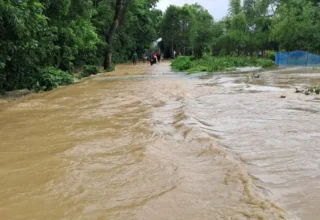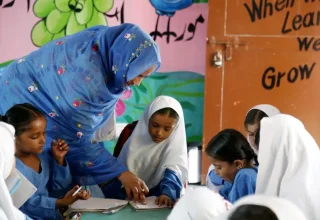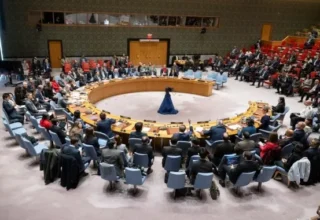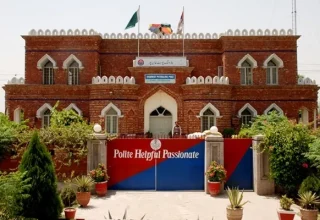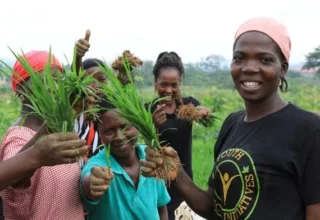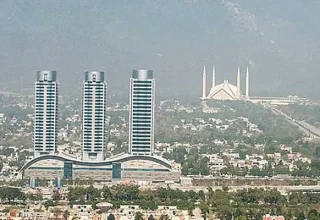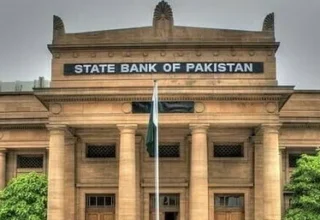
Pakistan witnessed a positive development in the financial system as e-banking transactions contributed to 85% of total payments processed by banks and Microfinance banks (MFBs). The remaining 15% were paper-based transactions, according to the latest number released by the State Bank of Pakistan (SBP).
This percentage stood at 80% for e-banking and 20% for paper-based transactions in FY22, indicating customers are gradually adopting digital channels. This trend can also be a causative effect of the post-COVID era, as many customers adjusted themselves to use digital channels to fulfill their day-to-day financial needs.
According to the SBP, banks, and MFBs have processed 2,073.3 million e-banking transactions amounting to Rs. 167.4 trillion in value during FY23, marking an annual YoY growth of 28.6% by volume and 21.4% by value.
Real-Time Online Banking transactions had the largest share (68.1%) in e-banking transactions by value followed by the combined share of Internet and Mobile Phone Banking (23.9%).
However, as far as transactions are concerned, Internet and Mobile Phone Banking had the highest share (40.1%) in e-banking transactions while ATM-based transactions (39.1%) stood in second place.
Payment cards witnessed a growth of 24%, as compared to last year, reaching 58.1 million cards in circulation by the end of FY23.
Similarly, Internet banking users increased by 15.1% to 9.6 million, while mobile phone banking users rose by 30.2%, reaching 16.1 million in FY23.
Additionally, Branchless Banking mobile app users saw significant growth of 42% reaching 57.8 million as of FY23 as compared to 40.8 million in FY22.
The e-commerce sector also flourished, as merchant registrations with banks/MFBs saw an increase of 41% in comparison to the previous fiscal year.
Further, in order to promote account-to-account-based payments and to enhance financial inclusion, Raast (free and instant retail payment system) is fostering the adoption of bulk and person-to-person payments and it has processed 155 million transactions amounting to Rs. 3.169 trillion in FY23.
In addition, a growth of 9.9% has been observed in Point of Sale (POS) terminals as well as a 3.9% increase in the number of ATMs installed during this time period.
As of June 2023, 17,808 ATMs were available across various locations of the country to facilitate customers for cash withdrawals, utility bill payments, funds transfers, and other allied transactions.
In addition, 520 CDMs were also available to facilitate customers for cash and cheque deposits on a 24/7 basis. For the last few years, the number of CDMs has been increasing as banks are extending banking services digitally to their customers to reduce footfall at the branches.
Similarly, Point-of-Sales (POS) services have also shown considerable growth in FY23 (9.9%), reaching a total of 115,288 POS terminals across the country.
In FY23, the value of paper-based transactions saw a substantial increase, rising by 20.1% to reach Rs. 228.7 trillion compared to the Rs. 190.4 trillion recorded in FY22. However, there was a decline of 4.5% in the number of paper-based transactions, which amounted to 374.3 million in FY23.
This trend indicates that customers are increasingly favoring e-banking channels for their smaller payments while opting for paper-based instruments when conducting higher-value transactions.
It’s worth noting that the average transaction sizes differed significantly, with Rs. 295,925 and Rs. 217,549 per transaction for cash deposits and withdrawals at banks’ counters, respectively. Similarly, the average ticket size for utility bill payments stood at Rs. 32,742 per transaction.
Pakistan’s digital payments landscape has evolved tremendously during the last decade with enabling regulations and technology-oriented market participants, bringing innovative digital products and services to facilitate customers in performing digital payments conveniently, securely, and efficiently.
Fintechs, Electronic Money Institutions (EMIs), Payment Services Providers (PSPs), and Payment System Operators (PSOs) are the frontrunners in digital payment infrastructure in addition to Banks and Microfinance Banks (MFBs).
However, it is still a formidable challenge to overcome the ingrained preference for cash-based transactions as evident from high Currency in Circulation (CiC) and the persistent influence of the informal economy, both of which continue to play a regressive role in the broader promotion of digital payments.



















